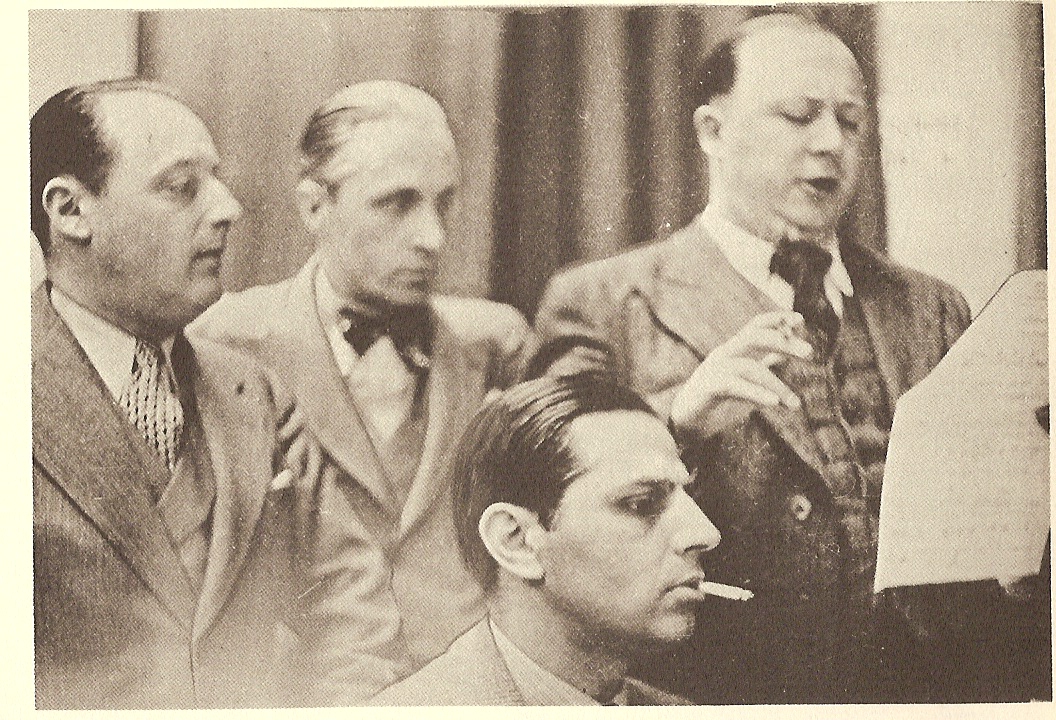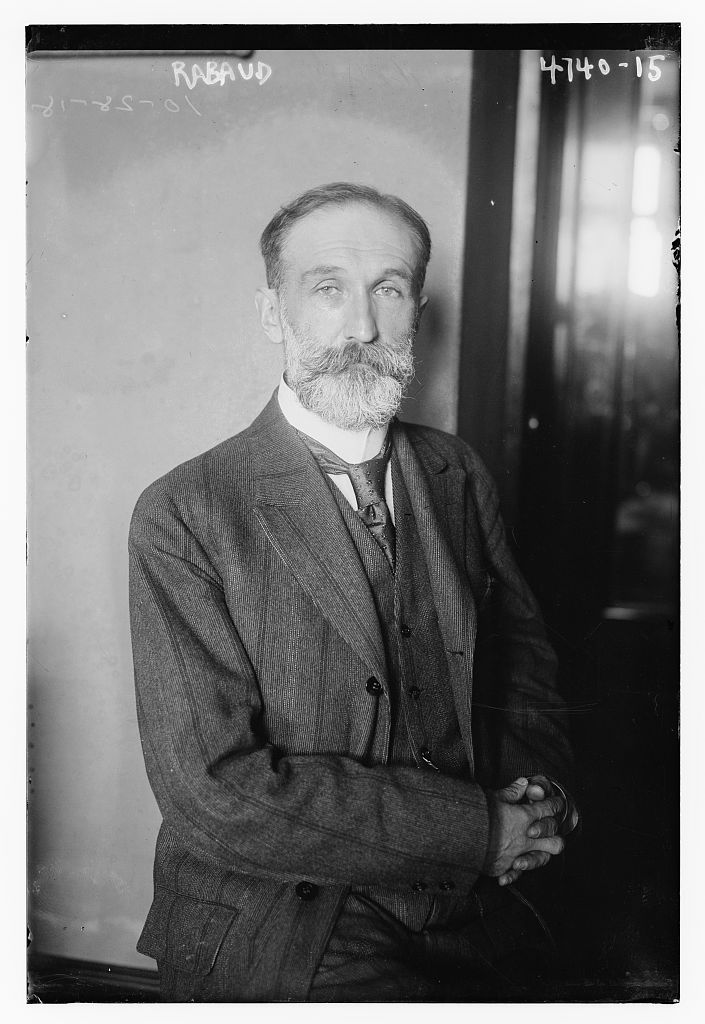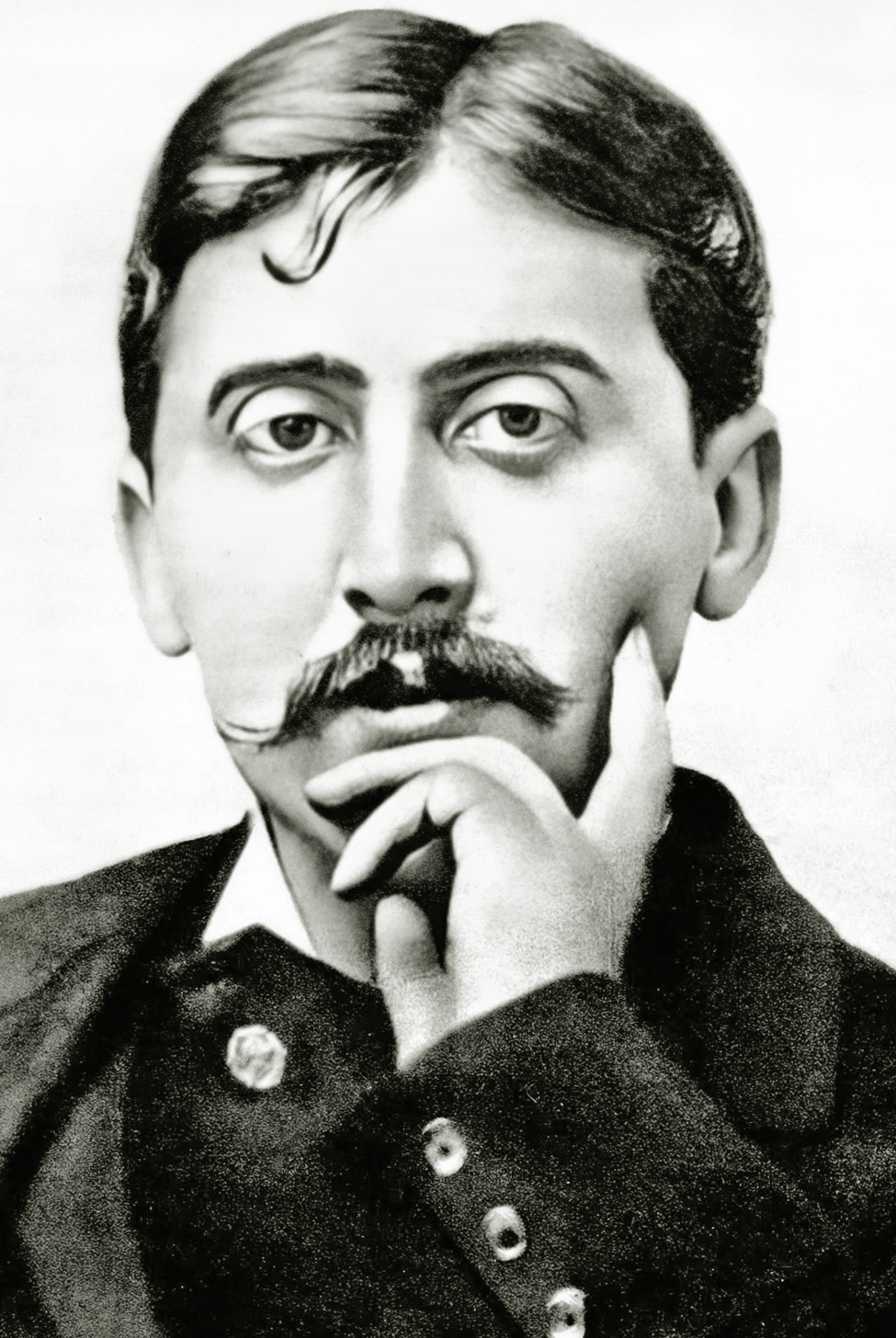|
Henri Médus
Henri Médus (21 October 1904 – 11 November 1985) was a French operatic bass. A member of the troupe of the Opéra Garnier from 1933, he distinguished himself particularly in the roles of : ''The Magic Flute'' (Sarastro), ''Samson et Dalila'' (the old Hebrew man), ''Aida'' (Ramfis), ''Rigoletto'' (Sparafucile), ''La Juive'' (Cardinal de Brogni), ''Les Huguenots'' (Marcel), ''Die Entführung aus dem Serail'' (Osmin), ''Boris Godunov'' (Pimen, Varlaam), ''Die Walküre'' (Hunding), and ''Der Rosenkavalier'' (Baron Ochs). Biography Medus was born in Guelma (Algeria) where he spent his childhood before his family settled in Algiers. He took singing lessons from Rose Elsie (soprano of the Opéra-Comique) After an audition for conductor Désiré-Émile Inghelbrecht (1880–1965), then musical director of the Algiers Opera, he was hired for the role of Colline in ''La Bohème''. He made his stage debut on 16 October 1929 in Puccini's opera in French. After two seasons of experienc ... [...More Info...] [...Related Items...] OR: [Wikipedia] [Google] [Baidu] |
Théâtre Du Châtelet
The Théâtre du Châtelet () is a theatre and opera house, located in the place du Châtelet in the 1st arrondissement of Paris, France. One of two theatres (the other being the Théâtre de la Ville) built on the site of a ''châtelet'', a small castle or fortress, it was designed by Gabriel Davioud at the request of Baron Haussmann between 1860 and 1862. Originally named the Théâtre Impérial du Châtelet, it has undergone remodeling and name changes over the years. Currently it seats 2,500 people. Description The theatre is one of two apparent twins constructed along the quays of the Seine, facing each other across the open Place du Châtelet. The other is the Théâtre de la Ville. Their external architecture is essentially Palladian entrances under arcades, although their interior layouts differ considerably. At the centre of the plaza is an ornate, sphinx-endowed fountain, erected in 1808, which commemorates Napoleon's victory in Egypt. Origins The Théâtre Imp� ... [...More Info...] [...Related Items...] OR: [Wikipedia] [Google] [Baidu] |
Hélène Bouvier
Hélène Bouvier (June 20, 1905 in Paris – March 11, 1978 in Paris) was a French operatic mezzo-soprano, particularly associated with the French repertoire. She studied at the Paris Conservatory and made her debut in Nantes in the title role of Gluck's ''Orfeo ed Euridice'', in 1930. She then left for Argentina where she sang at the Teatro Colón in Buenos Aires. Back in France, she made her debut at both the Palais Garnier and the Opéra-Comique during the 1938-39 season, where she quickly established herself in roles such as Carmen, Dalila, Charlotte, Geneviève, the mother in ''Louise'', etc. She made guest appearances at La Scala in Milan, La Monnaie in Brussels, the Monte Carlo Opera, also appearing in Dresden and Leipzig, the Holland Festival, and again at the Teatro Colón from 1949 until 1965. She took part in the creation of contemporary works, notably Maurice Duruflé's ''Requiem'' and Darius Milhaud's ''Bolivar''. She was also admired in Arthur Honegger's '' ... [...More Info...] [...Related Items...] OR: [Wikipedia] [Google] [Baidu] |
L'Enfance Du Christ
''L'enfance du Christ'' (''The Childhood of Christ''), Opus 25, is an oratorio by the French composer Hector Berlioz, based on the Holy Family's flight into Egypt (see Gospel of Matthew 2:13). Berlioz wrote his own words for the piece. Most of it was composed in 1853 and 1854, but it also incorporates an earlier work ''La fuite en Egypte'' (1850). It was first performed at the Salle Herz, Paris on 10 December 1854, with Berlioz conducting and soloists from the Opéra-Comique: Jourdan (Récitant), Depassio (Hérode), the couple Meillet (Marie and Joseph) and Bataille (Le père de famille). Berlioz described ''L'enfance'' as a ''Trilogie sacrée'' (sacred trilogy). The first of its three sections depicts King Herod ordering the massacre of all newborn children in Judaea; the second shows the Holy Family of Mary, Joseph, and Jesus setting out for Egypt to avoid the slaughter, having been warned by angels; and the final section portrays their arrival in the Egyptian town of Sais ... [...More Info...] [...Related Items...] OR: [Wikipedia] [Google] [Baidu] |
Georges Prêtre
Georges Prêtre (; 14 August 1924 – 4 January 2017) was a French orchestral and opera conductor. Biography Prêtre was born in Waziers ( Nord), and attended the Douai Conservatory and then studied harmony under Maurice Duruflé and conducting under André Cluytens among others at the Conservatoire de Paris. Amongst his early musical interests were jazz and trumpet. After graduating, he conducted in a number of small French opera houses sometimes under the pseudonym Georges Dherain. His conducting debut was at the Opéra de Marseille in 1946. He also conducted at the opera houses in Lille and Toulouse. His Paris debut was at the Opéra-Comique in Richard Strauss's '' Capriccio''. He was director of the Opéra-Comique 1955–1959. He conducted at the Lyric Opera of Chicago 1959–1971. He was conductor, 1959, and music director 1970–1971, at the Paris Opéra. He was principal conductor of the Vienna Symphony 1986–1991. His Royal Opera House, Covent Garden, debut came ... [...More Info...] [...Related Items...] OR: [Wikipedia] [Google] [Baidu] |
Roger Soyer
Roger Soyer (born 1 September 1939) is a French operatic bass-baritone, particularly associated with the French repertory and with Mozart. Soyer was born in Thiais, and first studied privately with G. Daum, before entering the Conservatoire de Paris at the age of 19. There he was a pupil of Georges Jouatte and Louis Musy. He made his professional debut at the Théâtre des Champs-Élysées in 1962, creating the role of Mac Creag in Gilbert Bécaud's opera ''L'opéra d'Aran''. He sang on French Radio in 1964, in Rameau's ''Hippolyte et Aricie'', and made his debut at the Aix-en-Provence Festival in 1965, as Pluton in Monteverdi's ''L'Orfeo''. The same year he made his debut at the Opéra-Comique, as Colline, in ''La Bohème'', and at the Palais Garnier, as Mephisto in Gounod's ''Faust''. On the international scene, he appeared at the Wexford Festival in ''La jolie fille de Perth'', and at the Edinburgh Festival as ''Don Giovanni'', a role he became closely associated with, sing ... [...More Info...] [...Related Items...] OR: [Wikipedia] [Google] [Baidu] |
Rosanna Carteri
Rosanna Carteri (14 December 193025 October 2020) was an Italian soprano, primarily active from the 1950s through the mid 1960s. After her debut in Rome at age 19 as Elsa in Wagner's ''Lohengrin'', she appeared in leading roles internationally, based at La Scala in Milan. She participated in world premieres such as the title role of Pizzetti's '' Ifigenia''. Life and career Rosanna Carteri was born in Verona and raised in Padua. She studied with Ferrucio Cusinati and started singing in concert at the age of twelve. She won a RAI singing contest in 1948 which led to her operatic debut at the Baths of Caracalla in Rome as Elsa in Wagner's ''Lohengrin'' in 1949, aged only 19. She made her La Scala debut in Milan in 1951 in the title role of Piccinni's ''La buona figliuola'', directed by Giorgio Strehler. She first sang at the Salzburg Festival as Desdemona in Verdi's ''Otello'' in 1952, conducted by Wilhelm Furtwängler, and at the San Francisco Opera as Mimi in Puccini's ''La boh ... [...More Info...] [...Related Items...] OR: [Wikipedia] [Google] [Baidu] |
Conservatoire De Paris
The Conservatoire de Paris (), also known as the Paris Conservatory, is a college of music and dance founded in 1795. Officially known as the Conservatoire National Supérieur de Musique et de Danse de Paris (CNSMDP), it is situated in the avenue Jean Jaurès in the 19th arrondissement of Paris, France. The Conservatoire offers instruction in music and dance, drawing on the traditions of the 'French School'. Formerly the conservatory also included drama, but in 1946 that division was moved into a separate school, the Conservatoire National Supérieur d'Art Dramatique (CNSAD), for acting, theatre and drama. Today the conservatories operate under the auspices of the Ministry of Culture and Communication and are associate members of PSL University. The CNSMDP is also associated with the Conservatoire National Supérieur de Musique et de Danse de Lyon (CNSMDL). History École Royale de Chant On 3 December 1783 Papillon de la Ferté, ''intendant'' of the Menus-Plaisirs du Roi, pro ... [...More Info...] [...Related Items...] OR: [Wikipedia] [Google] [Baidu] |
Gilbert Bécaud
Gilbert Bécaud (, 24 October 1927 – 18 December 2001) was a French singer, composer, pianist and actor, known as "Monsieur 100,000 Volts" for his energetic performances. His best-known hits are "Nathalie" and "Et maintenant", a 1961 release that became an English language hit as " What Now My Love". He remained a popular artist for nearly fifty years, identifiable in his dark blue suits, with a white shirt and "lucky tie"; blue with white polka dots. When asked to explain his gift he said, "A flower doesn't understand botany." His favourite venue was the Paris Olympia under the management of Bruno Coquatrix. He debuted there in 1954 and headlined in 1955, attracting 6,000 on his first night, three times the capacity. On 13 November 1997, Bécaud was present for the re-opening of the venue after its reconstruction. Biography Born François Gilbert Léopold Silly in Toulon, France, Bécaud learned to play the piano at a young age, and then went to the Conservatoire de Nice. In ... [...More Info...] [...Related Items...] OR: [Wikipedia] [Google] [Baidu] |
Henri Rabaud
Henri Benjamin Rabaud (10 November 187311 September 1949) was a French conductor, composer and pedagogue, who held important posts in the French musical establishment and upheld mainly conservative trends in French music in the first half of the twentieth century.Girardot A. Henri Rabaud. In: ''The New Grove Dictionary of Opera.'' Macmillan, London and New York, 1997.Landormy P. ''La Musique Française après Debussy.'' Gallimard, Paris, 1943. Life and career Rabaud came from a musical background. He was the son of a cellist Hippolyte Rabaud (1839–1900), professor of cello at the Paris Conservatoire, while his mother was a singer who almost created the role of Marguérite at the request of Charles Gounod. His maternal grandfather was a well-known flautist, while his great aunt was Julie Dorus-Gras. Henri studied at the Conservatoire with André Gedalge and Jules Massenet. In 1908, he became a conductor at the Paris Opéra-Comique where he later conducted the 100th perf ... [...More Info...] [...Related Items...] OR: [Wikipedia] [Google] [Baidu] |
Max D'Ollone
Maximilien-Paul-Marie-Félix d'Ollone (13 June 1875 – 15 May 1959) was a 20th-century French composer. Life and career Born in Besançon, d'Ollone started composing very early, entering the Paris Conservatoire at 6, winning many prizes, receiving the encouragement of Gounod, Saint-Saëns, Massenet, Thomas and Delibes. His teachers at the Conservatoire were Lavignac, Massenet, Gédalge and Lenepveu; he won the Prix de Rome in 1897. He was director of music in Angers, professor at the Paris Conservatoire and director of the Opéra-Comique. His work was part of the music event in the art competition at the 1912 Summer Olympics. In 1932 he wrote three important articles for ''Le Ménestrel'' (29 July, 9 and 16 December) arguing for a more populist approach to composition.Landormy (1943) In addition to the works listed below, d'Ollone produced a number of song cycles (including "Les Chants d'Ailleurs"; " Les Chants d'Exil"; "Impressions d'Automne"), which demonstrate a c ... [...More Info...] [...Related Items...] OR: [Wikipedia] [Google] [Baidu] |
Reynaldo Hahn
Reynaldo Hahn (; 9 August 1874 – 28 January 1947) was a Venezuelan-born French composer, conductor, music critic, and singer. He is best known for his songs – ''mélodies'' – of which he wrote more than 100. Hahn was born in Caracas but his family moved to Paris when he was a child, and he lived most of his life there. Following the success of his song "''Si mes vers avaient des ailes''" (If my verses had wings), written when he was aged 14, he became a prominent member of ''fin de siècle'' French society. Among his closest friends were Sarah Bernhardt and Marcel Proust. After the First World War, in which he served in the army, Hahn adapted to new musical and theatrical trends and enjoyed successes with his first opérette, ''Ciboulette'' (1923) and a collaboration with Sacha Guitry, the musical comedy ''Mozart (comédie musicale), Mozart'' (1926). During the Second World War Hahn, who was of Jewish descent, took refuge in Monaco, returning to Paris in 1945 where he w ... [...More Info...] [...Related Items...] OR: [Wikipedia] [Google] [Baidu] |






